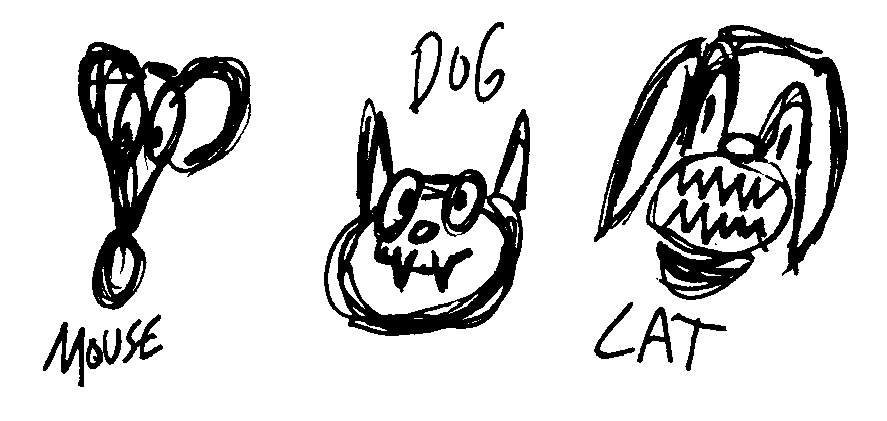
Excerpt from Gray Flag #3.
The Egg Shift

As soon as you step off the plane at the airport in Metairie, you’re hit with a blast of hot, humid air that does not subside. With it comes a musty smell that fills your nose and lungs. It’s a smell you can’t describe because it is in every cubic inch of the air and before long you can no longer detect it. This is the Deep South, someplace you have never been.
As you ride in the cab from the airport to the Robin Street wharf on New Orleans’ Mississippi, you get a laid-back vibe from the scenery and the people you see from your backseat window. It’s exactly as you imagined it would be.
You board the Delta Queen at 2:00 p.m. and have a uniform issued and a cabin and roommate assigned. You pee in a cup while the Personnel Coordinator and another official-looking person wait outside ready to seal your pee cup with tape and send it off to be tested for drugs. You get a quick tour of the ancient steamboat, along with some fire safety instructions, and are dressed and ready for work by three o’clock. You’re dripping with sweat within five minutes of having put on the heavy white chef’s coat and black and white checkered pants. You feel like the Pillsbury Doughboy and look like Chef Boyardee.
In the kitchen, you’re introduced to the cooks and the rest of the kitchen staff. About ten people in all, including dishwashers, are crammed into a small, cramped kitchen below deck. You’re given light prep jobs to do on that first night. They want to see what you can do and determine where they’re going to put you for the next six weeks. You cut vegetables, shred lettuce, and core tomatoes alongside a man named Joe, a New Orleans’ son, who is listening to a cassette tape of some N’awlins rag band. You’re excited. This is New Orleans, the capital of crazy, the underbelly of the country, the beginning of the end of the line for everything.
At five o’clock the boat leaves for Baton Rouge. Your shift ends at 9 p.m. and they assign you a permanent shift. You are to report back to work at 2 a.m. the following morning. That’s in five hours. You have five hours to sleep. Five hours is twice as much sleep as you got the night before and will get for quite some time. That night you sit on the deck and talk with a few porters and cooks. They bitch about this life in hell, each thinking they have the harder job, the hotter work area, and the least to lose by jumping into the bayou waters and swimming for shore. That thought sounds appealing. You start to panic. What did you get yourself into?
The job description you received in the mail said upfront that the work was tedious and the hours long. The tourist brochures you got from the PR office painted a happier picture. There were photos of both riverboat employees and passengers having a good time on their cruise. Everyone was smiling in the photos. The porters looked happy carrying the passengers’ luggage and the waiters looked happy to be serving them, while the passengers were happy to be served. You’re about to find that the truth lay somewhere just below deck.
You report to work at 2 a.m. for what you’ll come to refer to as the Egg Shift. It’s a 12-hour shift that runs through lunch, but it’s the eggs you’ll remember the most. Eggs are ordered poached, soft-boiled, hard-boiled, scrambled, and fried sunny side up, over easy, over medium, and over hard. Some people might not think that’s a lot of ways to cook an egg, but if they ever had to cook a dozen eggs in every one of these styles at the same time, they would change their mind.
Orders aren’t written down, just shouted out by the waiters. You’re a Yankee and have a hard time understanding your coworkers.
The work day for the Egg Shift begins at 1:45 a.m. when you sit up in your bunk, realize where you are, and yell “Awwww FUCK!”
You reluctantly rise from bed and get dressed in your heavy, flame-retardant uniform. You trudge out of your cubbyhole cabin and down the claustrophobic hallway, up the steep steel staircase, and into the hot kitchen where you are greeted by Ray (your partner in the kitchen) and a case of eggs.
There are thirty dozen eggs per case of medium-sized chicken eggs, farm fresh from the egg factory. That’s 360 eggs that need to be cracked into a ten-gallon bucket every morning.
When you first start cracking eggs, you are careful not to let any shells fall into the bucket. This lasts for a dozen or so eggs, then you get a little lax. You figure that a couple of tiny eggshell pieces aren’t going to hurt anyone. After the first hundred or so eggs, the shell chunks get bigger. You try to scoop some of the really obvious ones out of the bucket, but for the most part, you rationalize that most people don’t get enough calcium anyway and that you are doing them a favor.
After all the eggs are cracked into the bucket, you beat the hell out of them with the biggest whisk you can get your hands on. The three-foot wire whisk is preferred. It looks more like a medieval torture device than a cooking utensil.
When you have finished beating your eggs, you must store them in the cooler until later. Before you do that you must add some “dairy product” as your partner Ray calls it even though it is just milk. “Did you put some dairy product in the eggs?” Ray asks every morning.

If you have never seen scrambled eggs mass-produced for one hundred and fifty-odd people, it’s quite a sight and will surely put you off mass-produced scrambled eggs. The eggs are scrambled in a 40-gallon stainless steel tilt skillet. It’s like a bathtub but with 90-degree angles. It’s about four feet long and three feet wide. The skillet tilts so that the scrambled eggs can be scraped out into a hotel pan and dropped into a chafing dish on a buffet table. Sausages and bacon are also prepared in this huge skillet and so is French toast. Whole loaves of white bread can be toasted at one time and then left to sit in pans in the warming oven.
All this is done in preparation for the breakfast buffet for the passengers aboard the historic riverboat, or the “Geriatric Boat” as the porters call it due to the relative age of the passengers.

The rest of the day goes by quickly after breakfast. All that is left to do is the lunch orders. The food is already prepared and hot in the steam table for you, because while you were busy slinging eggs someone was looking out for you. The choice for lunch is usually either fish or chicken, rice or potatoes plus a vegetable. Plate it up, put it out, and clean your station.
After you’ve cleaned up your entire work area for the next shift, you can grab a bite to eat for yourself from the once-hot-now-cold buffet in the employee lounge. Then turn in your sweat-soaked uniform, get a fresh one, hit the showers, and hit the sack where you’ll dream of eggs, scrambled, poached, and fried sunny side shining on a brand new day.
As you lay in your bunk that first night listening to the sound of gears grinding in the engine room somewhere close by, you think about the Mighty Mississippi and all the adventures that lay ahead of you over the next six weeks. You pray that you might die in the night.
LETTER NEVER SENT
Homeboy,
Sorry I had to diss out on your steamboatin’ groove. It was a bizarre twist of fate that brought me back to Chicago and I’ve been having mixed feelings about the whole ordeal. Jeff S. called me this morning. He wanted me to fly to Memphis on Saturday and godamnit, man, I almost said yes. I sat around the apartment all morning trying to decide whether or not to go back. It seemed appealing again. Traveling around the country, seeing the sights, living life, and all that shit, but fuck it.
I need a job pretty bad. I’m broke. All the money I made on the boat went toward rent and I still have bills to pay. I have your cat. K’s roommate was allergic to it. He’s been sort of difficult. He took a shit in K’s bed and puked in her roommate’s bed. He’s sort of behaved here. He eats my plants and refuses to bury his turds. Here he is right now sitting with his bunghole on the kitchen table. His collar is missing but I think I can track it down at K’s. Anyway, have you tried spankin’ the monkey on the boat yet? Betcha’ have.